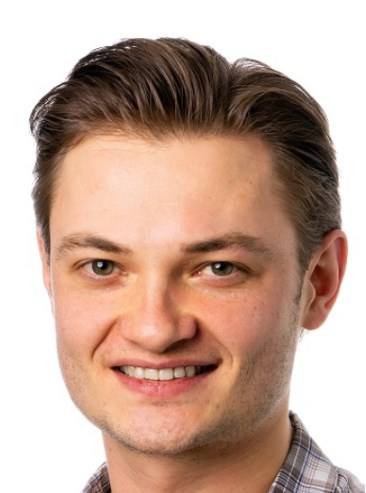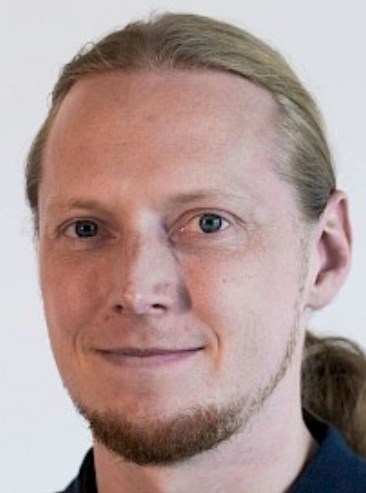// EuroVis PhD Award 2019
Eurographics Annual Award for Best PhD Thesis
The EuroVis Best PhD Dissertation Award recognizes outstanding dissertations in academic research and development over topics relevant to visualization. The intent of this award is to recognize excellent young researchers in their early career and to highlight visualization research. The award is managed by the Best PhD dissertation committee, constituted by a Chair appointed by the EuroVis Steering Committee.
For 2019, the Chair is Jean-Daniel Fekete.
Best PhD Awards 2019
 |
Sergej Stoppel – University of Bergen, NO for his outstanding PhD thesis “User-Centric Parameter Specification for Interactive Virtual and Physical Visual Representations” where he showcases highly creative and inspiring ideas and solutions to help analysts navigate complex parametric spaces using virtual, physical, and physically inspired devices. |
 |
Thomas Mühlbacher – Technical University Vienna, AU for his outstanding PhD thesis “Human-Oriented Statistical Modeling: Making Algorithms Accessible through Interactive Visualization” introducing an innovative, consistent. and efficient framework to provide visual guidance to analysts, rethinking the dominating “black-box” paradigm. |
Best PhD Committee
- Jean-Daniel Fekete, Inria, FR (chair)
- Niklas Elmqvist, Univ. of Maryland, US
- Miriah Meyer, Univ. of Utah, US
- Berhard Preim, University of Magdeburg
- Jarke van Wijk, Eindhoven University of Technology, NL
Selection Procedure
Four to six recognized members of the EuroVis community, selected by the Chair, will form a review committee to thoroughly review and assess the dissertation submissions. The committee will judge the dissertations based on their intellectual merit, technical depth, and presentation quality.
The committee is selected with prominent members of the EuroVis community. Their names are public to foster transparency and attest of the value of the awards. The selection is done after all the applications are received to avoid hard conflicts, i.e. advisors of applicants in the committee. The chair cannot be conflicted either so none of his former PhD students can apply during his term. Soft conflicts are possible: a committee member can be part of the institution of an applicant, either during the PhD or after, or have co-authored with the applicant. In that case, the committee member will not be able to speak about the application during the discussion and can decide or be asked to leave the discussion when it concerns the applicant in soft conflict. Prominent researchers are used to handling these cases when they participate in a selection or prize jury.
The selection is handled in two to three meetings, usually conducted through a videoconferencing system:
- 1 = They agree on the selection process, on the eligibility of the applicants, and get assigned four PhDs, each PhD being reviewed by two committee members. They will have to read and score them according to the scientific contribution, difficulty of the problem addressed, originality of the solution, quality of the writing/presentation, potential/effective impact, number of EuroVis publications. The citations according to Google Scholar are also collected, as well as the duration of the PhD, that varies widely throughout the institutions and countries. The information gathered is used to provide factual information to the debate, no automatic ranking or scoring is used to filter-out applicants.
- 2 = The committee meets again and discusses each of the PhDs. In the end, a short list of 2-6 PhDs is selected from intense discussions. A major rule is to remain positive about all the PhDs. Each member of the committee need to complete their reading of all the shortlisted PhDs for the next meeting and provide a full ranking (except for the soft conflicts obviously).
- 3 = The committee meets and compares the ranking, discussing the differences in the ranking to achieve a consensus. It can decide to select up to 3 PhDs to be awarded.